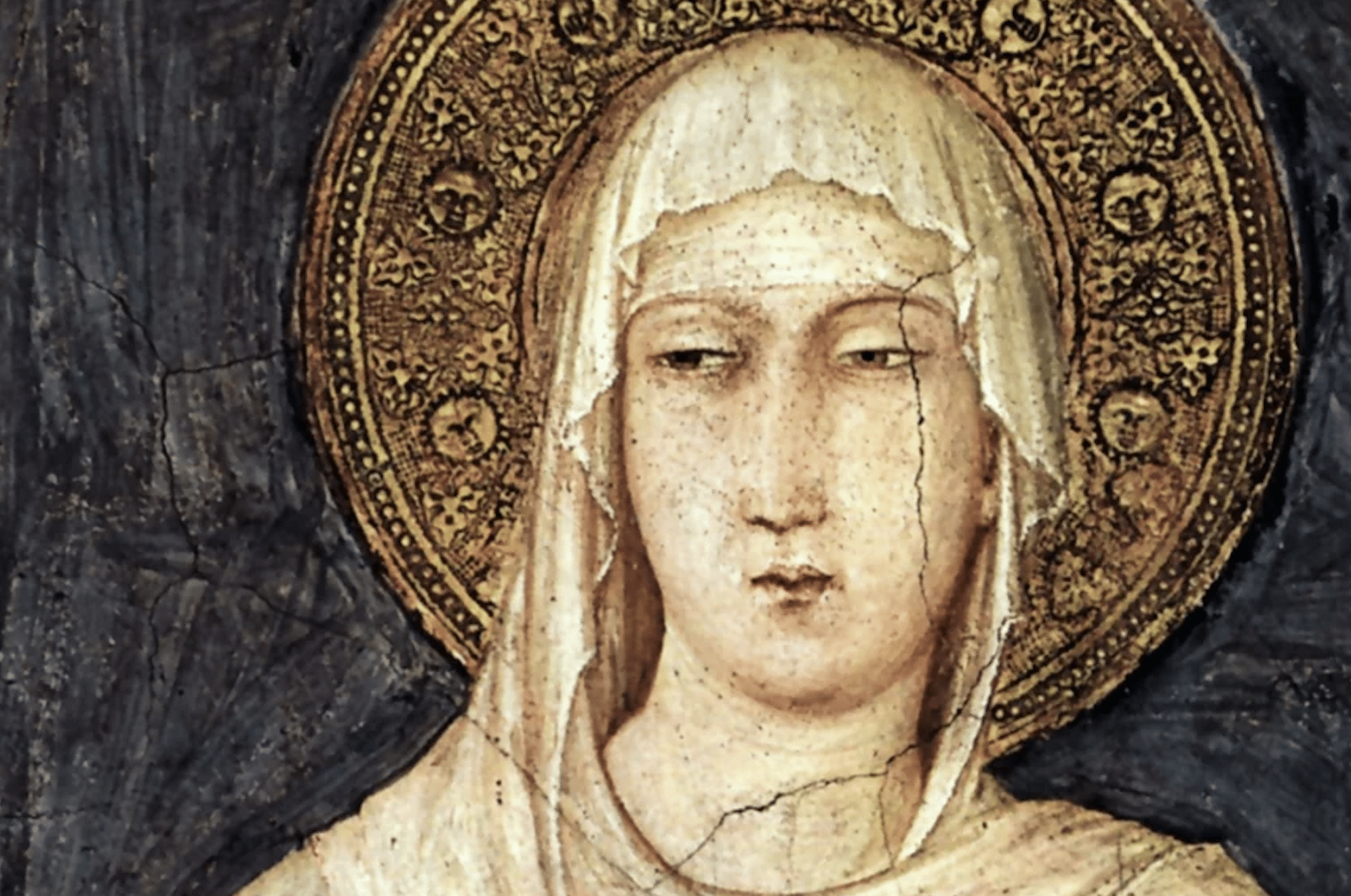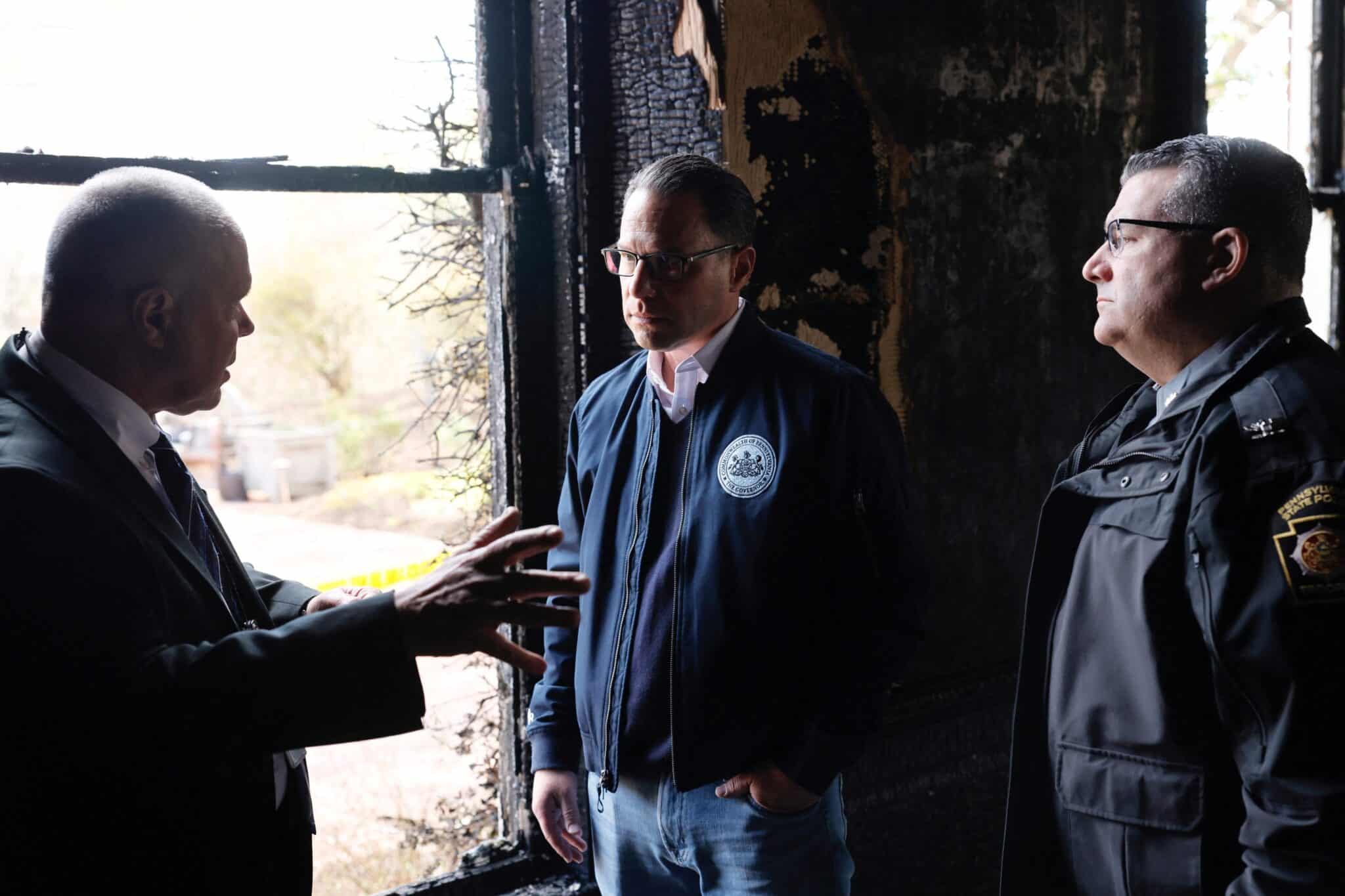“She was the first flower in Francis’ garden, and she shone like a radiant star, fragrant as a flower blossoming white and pure in springtime.”
—St. Bonaventure—
What does Clare teach us about following Jesus? She teaches us to follow Francis, who followed Jesus so perfectly and so literally in pursuit of poverty, desiring nothing more than the Lord. Clare teaches us that we can be committed faithful followers of Francis and of Jesus while doing it in our own unique way in accord with our circumstances in life. Both Clare and Francis sacrificed all attachment to material possessions in their search for the Christian life they were called to follow. Francis’s journey took him to distant places in his world. He walked hundreds of miles around the peninsula now called Italy. He ventured to the land of the Sultan of Damietta.
In contrast, Clare journeyed the short distance from her father’s home to the little Church of Saint Mary of the Angels, which Francis dubbed the Portiuncula, or Little Portion. There she was received by the brothers. After a brief stay with Benedictine nuns, she was to spend the remainder of her life in the convent of San Damiano, the little chapel where the Lord had spoken to Francis from the crucifix saying, “Go and rebuild my Church.”
Clare was to have a permanent home. Francis had special places he visited, but if he were alive today, we might say he had no permanent mailing address. Francis met and preached to unknown numbers of people—on the dusty roads, in city squares, in churches and chapels around the countryside. Clare spread God’s love through prayer, which attracted followers to her Franciscan way of life. Her prayers brought healings. She wrote letters to those in foreign lands, encouraging them in their Franciscan journeys. But she stayed close to home at San Damiano.
Two dramatically different lifestyles followed the same goal: loving God with all their heart and soul and mind and strength. Few of us are called to give away everything we possess. In many cases, that might actually be an ungodly thing to do because we have responsibilities for others—spouses, children, aging parents—that God entrusts to us. God has given us special gifts to use for his purposes—as workers in the marketplace, friends in the community, healers of the brokenhearted, lovers of the downtrodden. We won’t shed our clothes on our village square in exchange for a ragged tunic with rope belt as Francis did. We won’t have our hair shorn as a sign of humility in imitation of Clare. But we can devote our lives to following Jesus in the way of Francis and Clare in ways adapted to the time in which we live.
The challenge of Francis and Clare to us is to discover that way and to persevere on its path in our own times in our own ways. Even the twelfth-century hill town of Assisi vibrated with enough noise of humans, animals, carts, and wagons to drown the voice of silence. Not only sounds but reminders that there is something we must be doing that distracts us when we seek God in prayer.
Both Clare and Francis sought quiet spots where they could hear the Lord speak in their hearts. They knew God had much to say to them if only they could hear the message. Clare’s quiet place was the monastery; Francis retreated to mountain caves. Our world is undoubtedly much noisier than Assisi eight centuries ago. Distractions abound. Noise thunders. Silence is a precious commodity, one to treasure. God has much to say to us, as he did to Clare and Francis, if we can find the space and place to listen.
Clare’s name means “light.” She is the bright, shining one who reflected God’s love into the world from a cloistered convent where she lived with her spiritual sisters, first known as the Order of Poor Ladies, later the Poor Clares. That light continues today to shine through the Poor Clares throughout the world as they pray for our world.
Clare is also referred to as the “little plant” of Francis. One can visualize a branch plucked from a plant and stuck in the soil to take root to become a plant of its own. So was Clare’s spiritual being rooted in Francis. Both of them were the branches grown from the Lord who proclaimed, “I am the vine, you are the branches” (John 15:5).
Christ is the mirror of God. “Mirror of Perfection” is a term used to describe Francis. And Clare was indeed a mirror of Francis. She caught what he taught by his way of life and then sent it into the world through her sisters, her prayer, her writing, and the Order she established. You and I can become mirrors of Jesus, Francis, and Clare in our own ways, in our own times.
Questions for Reflection
• What is your reaction to Clare’s decision to leave her family’s home to follow Francis?
• What aspect of Clare’s way of following Francis and Jesus do you think you might incorporate into your life? What would you have to sacrifice?








